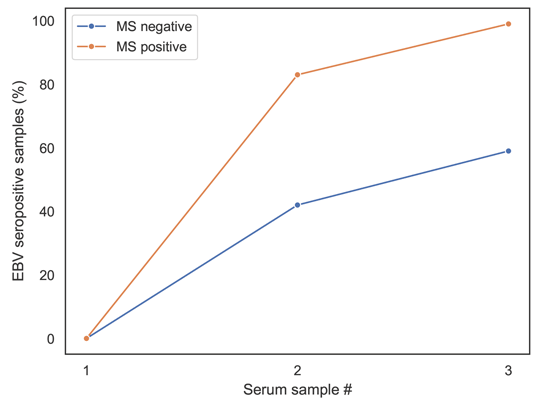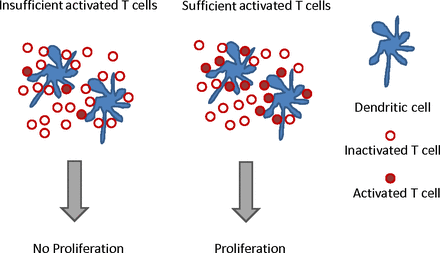Persistent infections
![]() There is epidemiological history of correlation between onset of autoimmune diseases and persistent infections:
There is epidemiological history of correlation between onset of autoimmune diseases and persistent infections:

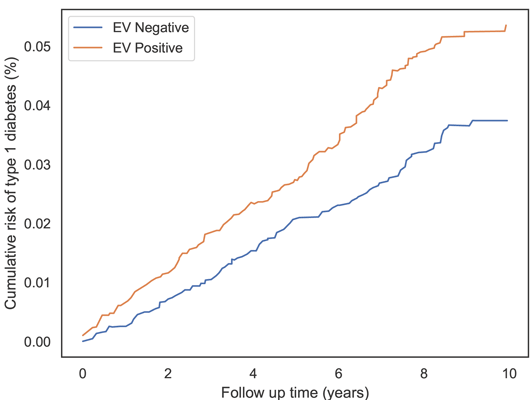

![]() How is peripheral tolerance overcome in persistent infections to cause T cell autoimmune disease despite quorum?
How is peripheral tolerance overcome in persistent infections to cause T cell autoimmune disease despite quorum?
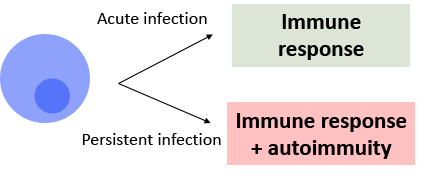
Hypothesis: [Rose Yin, Samuel Melton, Eric Huseby, M.K. & Arup K Chakraborty, bioRxiv (2023) (offline)]
Some T cells can be cross-reactive to both self and foreign epitopes.
Only a few foreign peptides are targeted during a typical acute infection (quorum relevant to cross reactive ones)
More foreign peptides are encountered over time during persistent infection.
Key observation: foreign activated T cells have lower threshold of activation towards self.
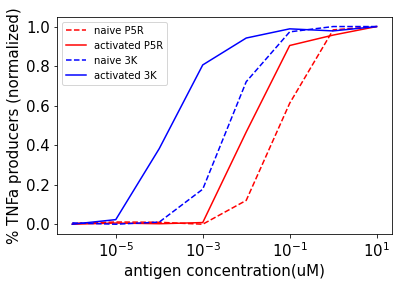
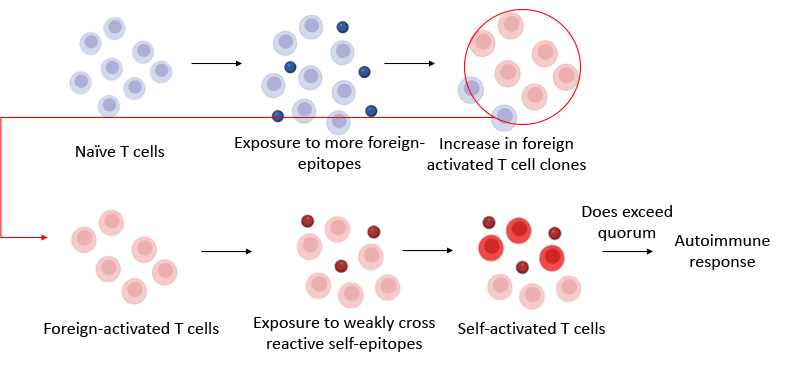
To quantify the hypothesis, we modified previous thymic selection and quorum models as follows:

Probability for onset of autoimmunity increases with the number of foreign peptides presented:
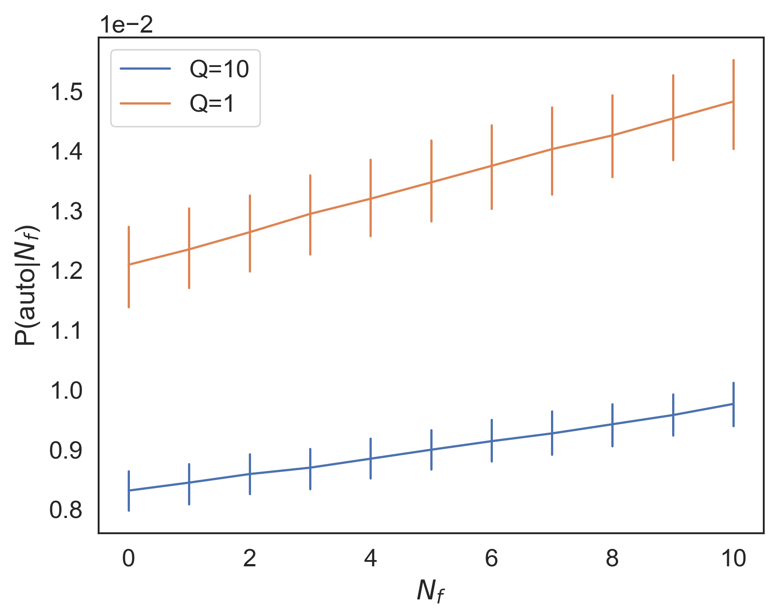
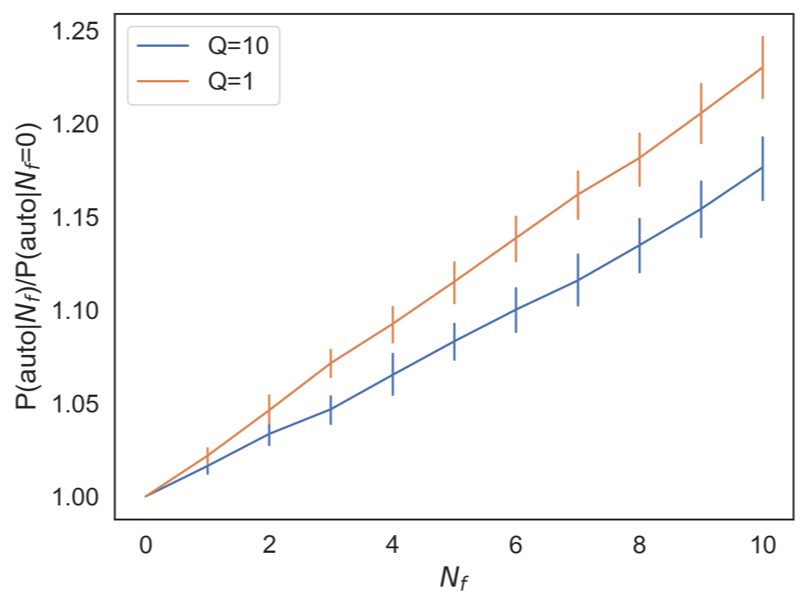
Qurum sensing mostly inhibits autoimmunity even in persistent infections
Only some persistent infections, with increasing probability but indeterminate time, lead to autoimmunity,
More foreign peptides are encountered over time during persistent infection.
The probability is dominated by encounters with rare (hydrophobic) peptides that activate many T cells
